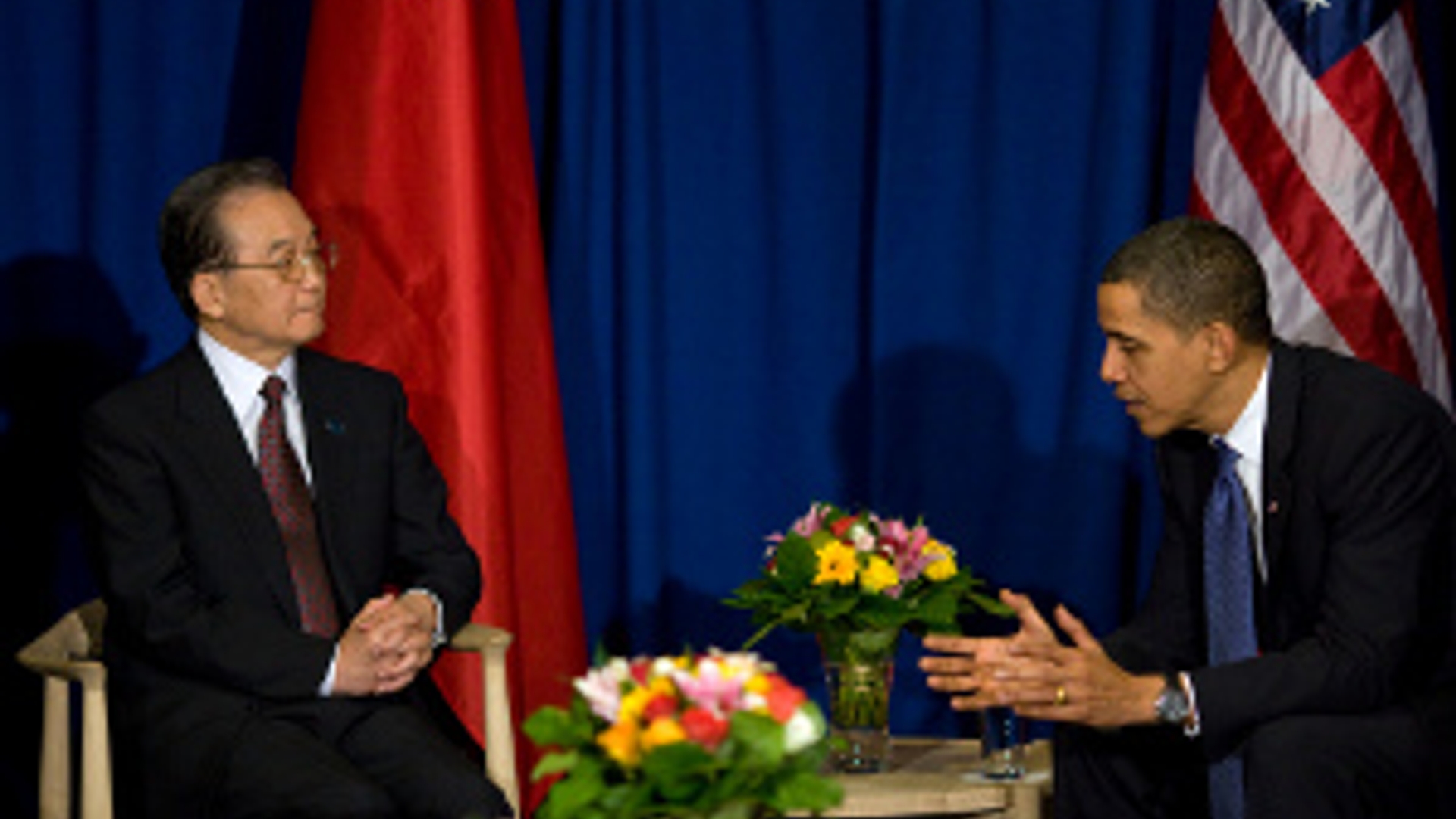De opiniesite van BNNVARA met actueel nieuws en uitgesproken meningen
Van binnenuit: hoe China de klimaattop om zeep hielp
•

Ooggetuige: 'China beledigde Obama moedwillig'
Wie nog mocht twijfelen aan de hoofdschuldige van het stukgelopen Kopenhagen-akkoord: een ooggetuige onthult dat het exclusief China was die een serieuze deal blokkeerde. In The Guardian legt hij in detail uit hoe de besloten meeting tussen de grote landen verliep.
Door redactie Joop
Dat Kopenhagen een mislukking is geworden, geldt als unaniem oordeel. Er dreigt echter onder te sneeuwen wie de hoofdverantwoordelijke is van het afketsen van een serieus akkoord. Mark Lynas, als freelance journalist gespecialiseerd in klimaatverandering, was erbij toen China de besprekingen moedwillig blokkeerde. Zij zijn de hoofdschuldige, maar proberen de schuld via spindoctoring in de schoenen van het westen te schuiven. In The Guardian legt hij uit hoe:
The truth is this: China wrecked the talks, intentionally humiliated Barack Obama, and insisted on an awful ‘deal’ so western leaders would walk away carrying the blame. How do I know this? Because I was in the room and saw it happen. China’s strategy was simple: block the open negotiations for two weeks, and then ensure that the closed-door deal made it look as if the west had failed the world’s poor once again. And sure enough, the aid agencies, civil society movements and environmental groups all took the bait.
Hoe dat precies in zijn werk ging beschrijft Lynas heel gedetailleerd:
Here’s what actually went on late last Friday night, as heads of state from two dozen countries met behind closed doors. Obama was at the table for several hours, sitting between Gordon Brown and the Ethiopian prime minister, Meles Zenawi. The Danish prime minister chaired, and on his right sat Ban Ki-moon, secretary-general of the UN. Probably only about 50 or 60 people, including the heads of state, were in the room. I was attached to one of the delegations, whose head of state was also present for most of the time. What I saw was profoundly shocking. The Chinese premier, Wen Jinbao, did not deign to attend the meetings personally, instead sending a second-tier official in the country’s foreign ministry to sit opposite Obama himself. The diplomatic snub was obvious and brutal, as was the practical implication: several times during the session, the world’s most powerful heads of state were forced to wait around as the Chinese delegate went off to make telephone calls to his ‘superiors’.
Tegen hen die Obama en de andere rijke landen de schuld geven, zegt Lynas dat het echt de Chinese vertegenwoordiger was die erop stond dat de doelstellingen van de geïndustrialiseerde landen (de eerder afgesproken reductie van 80% in de periode tot 2050) uit het akkoord werden gehaald. “Waarom kunnen we niet eens onze eigen targets noemen?” vroeg een woedende Angela Merkel. De Australische premier Kevin Rudd was zo geïrriteerd dat hij zijn microfoon een klap gaf. De Chinese onderhandelaar bleef resoluut bij zijn ‘nee’.
China, backed at times by India, then proceeded to take out all the numbers that mattered. A 2020 peaking year in global emissions, essential to restrain temperatures to 2C, was removed and replaced by woolly language suggesting that emissions should peak “as soon as possible”. The long-term target, of global 50% cuts by 2050, was also excised.”
Waarom eiste China zelfs het schrappen van restricties voor andere landen, vroegen veel diplomaten zich af. Lynas concludeert bitter dat het land zich wil indekken voor toekomstige inspanningen. De economische grootmacht China, die vooral draait op goedkope kolen, wil klimaatregulatie anno nu inperken om het risico te vermijden dat het over enkele jaren wordt aangespoord om nog ambitieuzer te zijn. Ze winnen dus simpelweg tijd.
Copenhagen was much worse than just another bad deal, because it illustrated a profound shift in global geopolitics. This is fast becoming China’s century, yet its leadership has displayed that multilateral environmental governance is not only not a priority, but is viewed as a hindrance to the new superpower’s freedom of action.
Lees het hele artikel bij The Guardian.
Praat mee
0/1500
